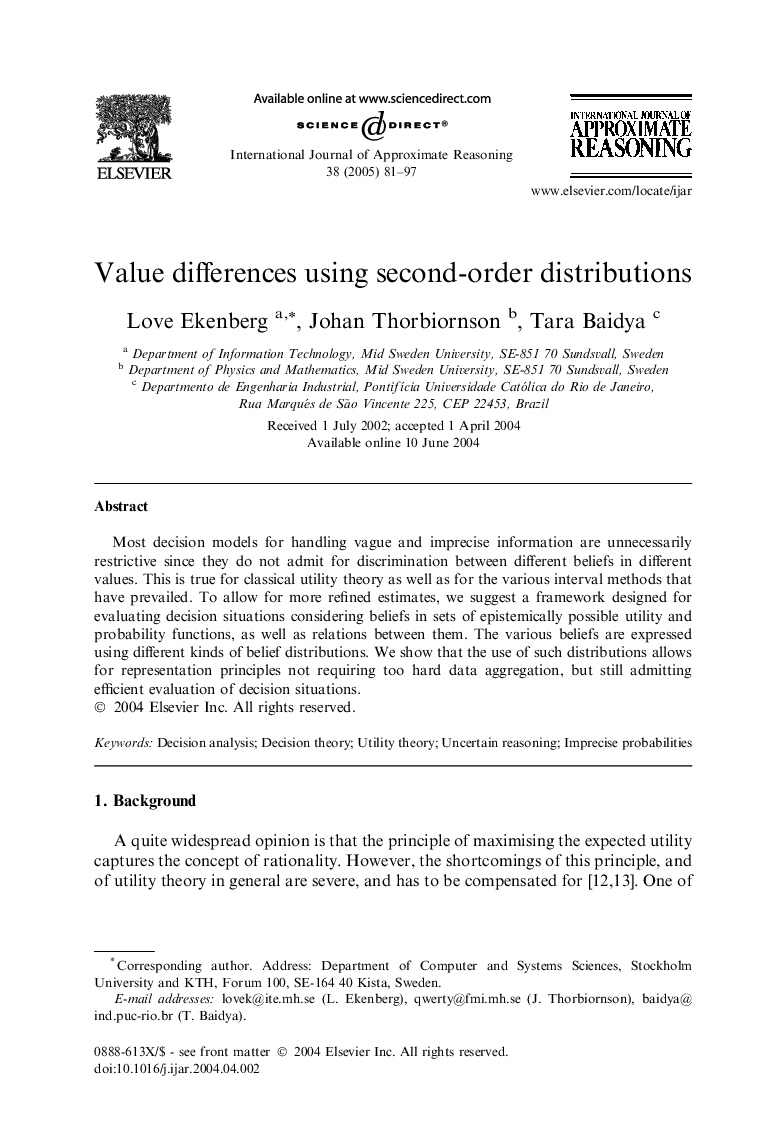| Article ID | Journal | Published Year | Pages | File Type |
|---|---|---|---|---|
| 9651774 | International Journal of Approximate Reasoning | 2005 | 17 Pages |
Abstract
Most decision models for handling vague and imprecise information are unnecessarily restrictive since they do not admit for discrimination between different beliefs in different values. This is true for classical utility theory as well as for the various interval methods that have prevailed. To allow for more refined estimates, we suggest a framework designed for evaluating decision situations considering beliefs in sets of epistemically possible utility and probability functions, as well as relations between them. The various beliefs are expressed using different kinds of belief distributions. We show that the use of such distributions allows for representation principles not requiring too hard data aggregation, but still admitting efficient evaluation of decision situations.
Related Topics
Physical Sciences and Engineering
Computer Science
Artificial Intelligence
Authors
Love Ekenberg, Johan Thorbiornson, Tara Baidya,
